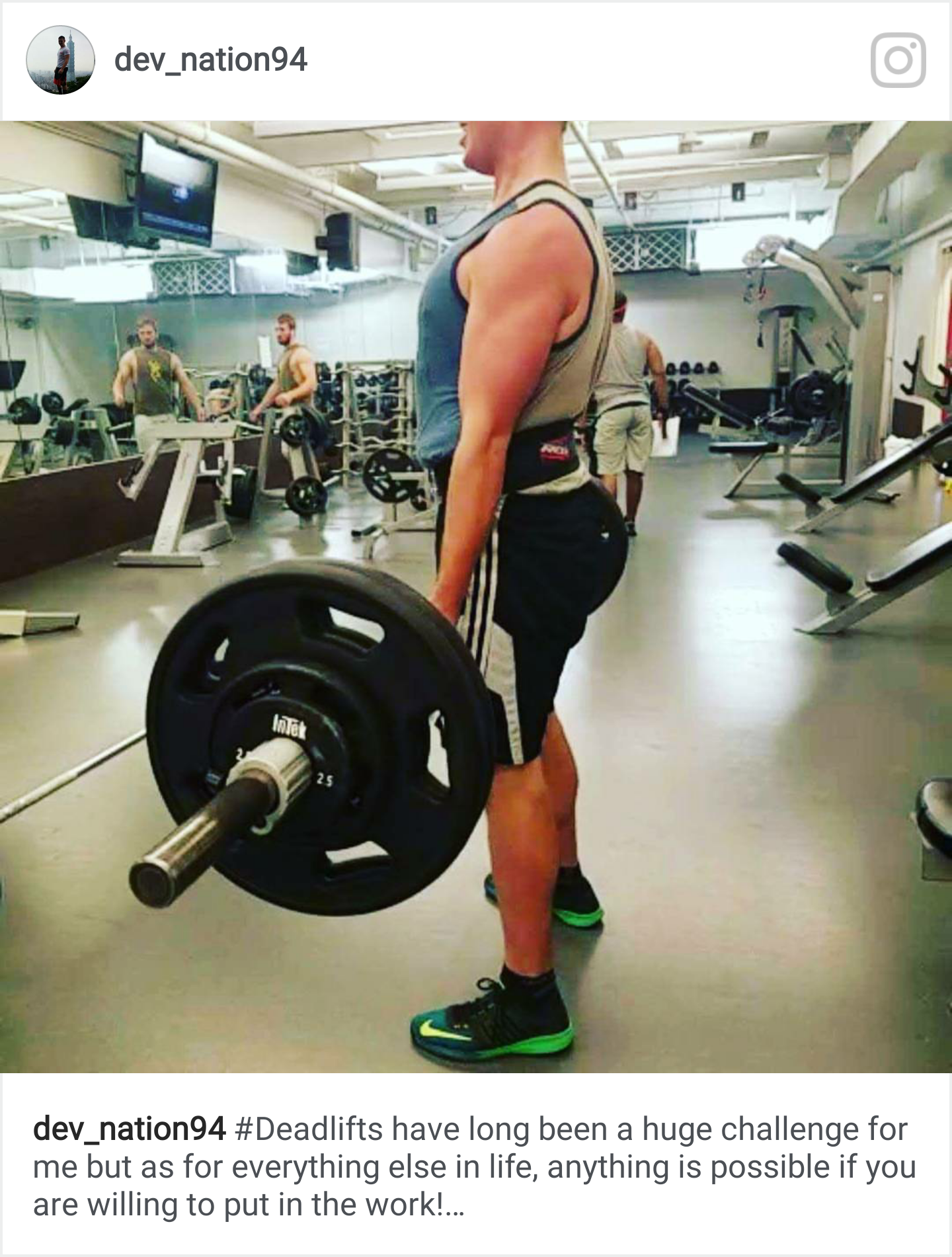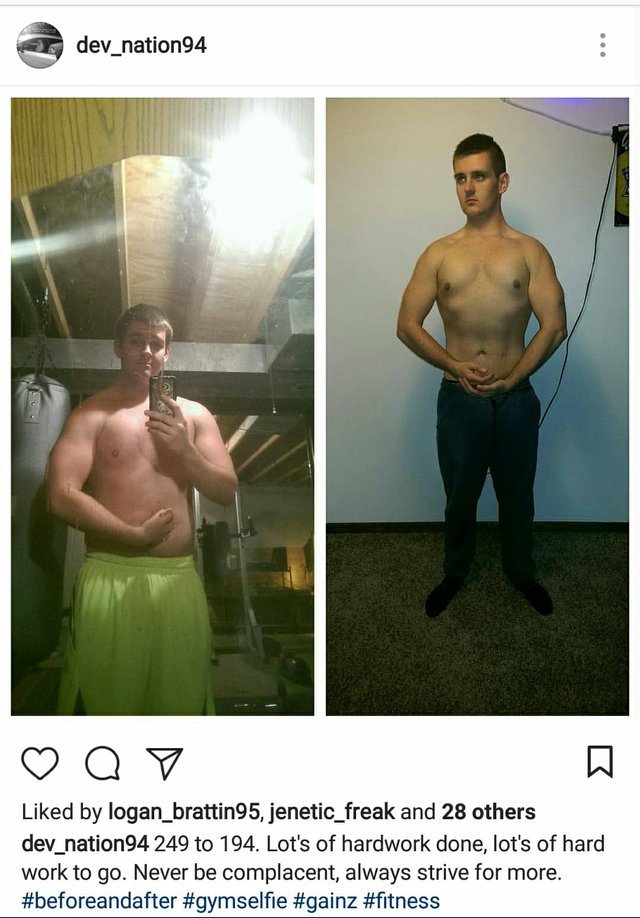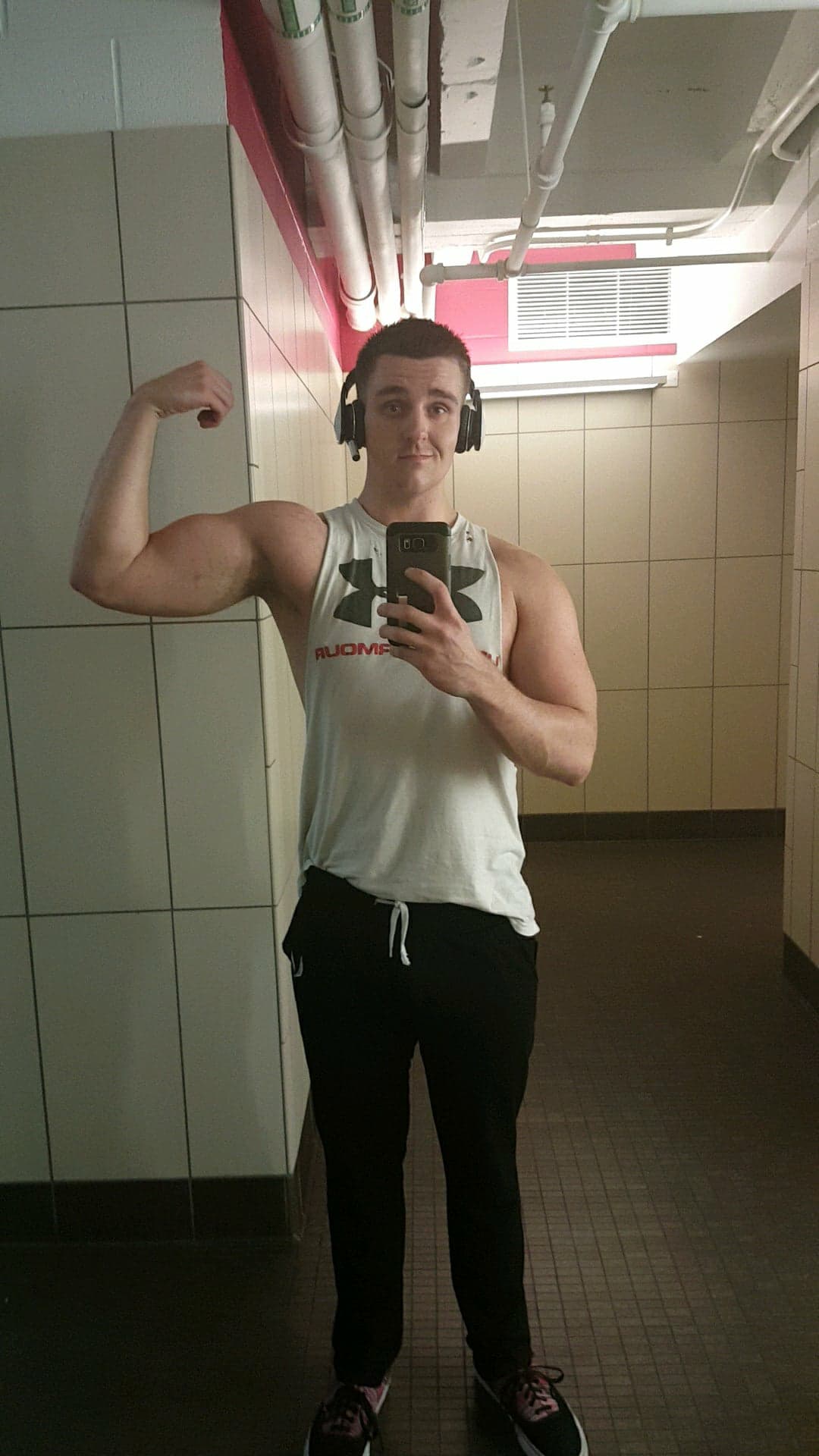The Gym Will Change Your Life! Small personal story and guide as to how fitness changed my life. /Quick guide.

Hello SteemIt, this is my second post ever and I really felt the need to share my experience in fitness with all of you. There is so much information out there now about fitness that's impossible to read and comprehend it all. Also, if you look around, there is a ton of information that is contradicting and quite ridiculous. Please understand that a complete all-inclusive guide to training would be as long as a dictionary. These are simply beginner basics and should help you to get started while pointing you in a good direction to learn more.
About me. Five years ago I attempted to join the US Army. Although I have always been quite strong, and I did train beforehand, I passed everything except the weight test. I needed to be around 177lbs and I was 240lbs. I had a feeling I would fail, but I went and tried anyway with high hopes that showcasing my physical skills in push ups and situps would suffice. It didn't and I soon found myself walking out of my draft class with my head down in shame. It was the worst feeling I had ever had, and I only had myself coupled with years of bad eating habits and playing video games all day to blame.
I started my fitness journey at 260lbs. I was fat. Really fat. So fat I couldn't do a pull-up or run even half a mile. I knew I had to change and when I took interest in joining the Army, I began what would change my life forever. I am now down to 180lbs and much happier with my life. Training has given me so much more than I deserve. I have a lot more energy, flexibility, high metabolism (more muscle = more metabolism), and a much happier life in general.

First step: SEAK OUT THE INFORMATION YOU NEED.
Please, do yourself a favor and do not step into the gym without being mentally equipped. No matter how out of shape you are, you can fix it, but not without the information to do so. What you will need is a basic understanding of how the body works. Understand what muscle groups you need to hit in order to burn the most calories. Any experienced lifter will tell you that you need to focus on the biggest muscle groups to get the biggest gains (and lose the most calories). Contrary to what you may believe, lifting actually burns more calories than cardio! Its true, because during cardio you burn calories but after your heart rate comes back to its resting rates, you don't burn any more calories. In the gym when you lift, you will burn calories up to 48 hours after lifting, or until your body has managed to repair the muscles you have broken down. To begin, focus heavily on training your chest (Pectoralis muscles), your back (latissimus dorsi), and your legs (Glutes, hamstrings, and calves). Don't expect to do some bro curls and lose weight, the biceps are a small muscle group and will do minimal in the long term to help you achieve your goals. You should still train them, but only after you have expended most of your energy training your larger muscle groups. Secondly, you need to know what movements impact which muscles and how the range of motion is impacting your muscle breakdown. Study up on this, you can find muscle group training guides all over bodybuilding.com, there's really no reason for me to include them here as they have it laid out much better then I could do on here. When you're a beginner, you will need to know the proper technique and practice with LOW WEIGHTS. This is important, if you get hurt, you're not going to make progress and you'll actually set yourself back.
Second step: LEAVE YOUR EGO AT HOME.
When first coming to the gym, you'll likely be shocked. It's stressful seeing Mr. Jacked and Mr. Veinspoppingoutofhisskull throwing around hundreds of pounds while you are lifting tiny little baby dumbells. This, however, is all part of the mental testing you will put yourself through. You'll feel as if everyone is judging you, and you may be right, but who cares? Everyone started somewhere and most people in the gym will be understanding and even helpful, as they remember being in the same position you are. No worries, if you come and work hard, do what you're supposed to do, and train intelligently, you will earn the respect of your gym peers and become part of a tight community. Start off slow and light, and work your way up. Ask the big meatheads for advice. Remember, they were you at one point, and more often than not, they would actually LIKE to help you.
Third step: DIETING.
Working out and trying to obtain a healthy body without proper diet is like driving your car with no gas. Its completely pointless and will get you absolutely nowhere. Relax, dieting seems harder than it is. Yes, you will have to make sacrifices, but after you see gains, you'll have no problems making these sacrifices for what you want. As a matter of fact, I flip it around and tell myself that eating unhealthy is sacrificing my health. Understand how macronutrients play their roles in your diet. As a good rule of thumb, you need to know what carbohydrates, proteins, and fats are, and how they impact your health. Build a diet that has a healthy balance of these three components and track what you eat using a tool like the myfitnesspal application (available on both IOS and Android). The way you eat will impact your performance. With no carbs, you will have low energy levels. With low protein, you will have long recovery times and be at risk for injury. Plan your diet alongside your training, as they are one together. Don't try to starve yourself and train, this is a recipe for disaster.
Understand that supplements are very unimportant. They are tools you can use to supplement your diet, but they will not get you shredded and burn off fat like they advertise. Without a proper diet, supplements are useless and will just burn a hole in your wallet. Think of supplements as only 5% of the total equation. Learning about macronutrients, tracking your calories, and having good nutrient timing is much more important than supplements. As a beginner, the only supplement I would advise would be Whey Protein to help with recovery. Everything else can come later and you need to really learn about what you're taking, as there are often more negative health effects than positive with most supplements. Remember that the packaging and marketing is designed to make money, not help you obtain your goals, so use these tools sparingly and wisely. You don't even need supplements if you train properly and have a good diet.
With dieting, you have to track your weekly weight. If weight loss is the goal, try to lose 2lbs per week. No more than that, as it becomes difficult to maintain muscle mass and it is unhealthy.
Alongside dieting, water consumption is one of the most crucial factors in your success. Without enough water, your body will suffer from low performance in the gym as well as low performing organs. When you are dehydrated, you will not burn as many calories and your body will suffer from toxins not being flushed out. You are also at a much higher risk of injury and heat-related problems. Make sure you drink plenty of water, especially before bed and around training time, but try to drink water all throughout the day. I cannot stress enough the importance of water, just by adding more water to your routine you can lose weight.
Fourth step: Managing fatigue.
You can't go to the gym every single day and kill your muscles. You just can't. Muscles are not built in the gym, they are damaged and they need lots of time and nutrients to heal. This will not happen in a few hours but over the course of several days. You may even notice that you are the most sore after 48 hours. This is normal and is called DOMS (delayed onset muscle soreness). Create a training plan that allows for light days and also for rest days. If you train too hard, you put yourself at risk for injury which will then create a massive time gap to allow for healing. If you manage your fatigue correctly and lift with good form, you have a very low chance of injury and you will be able to train more in the long term. Sleep is also crucial. Bodybuilders will sleep on average for 10 hours a day. As a noob, try to get at least 7-8 hours every day, especially on heavy training days. Your muscles recover much faster when you are asleep.
Fifth step: Adjust your rep ranges and weight.
After going to the gym a few times and trying different things out, its time to make a plan. Right down your muscle groups that you will train together. Popular groups include Chest and triceps, Back and biceps, legs and shoulders. Splitting up your muscle groups into different training days will help manage fatigue and also manage glycogen. Glycogen is the amount of energy your body has on tap, and with this said, you cannot go to the gym and completely destroy every muscle in your body all in one go, as you will be depleted of glycogen far before you hit good resistance levels for each muscle group. Split them up over the week and figure out how much volume you need to hit your goals. If your goal is weight loss, it's a good idea to start with 12 reps and 3 sets range. Adjust this according to the specific exercise and muscle group. Not all movements will require the same rep range and amount of sets. There is never a need to "max out". Trying to hit 1 rep of the highest weight you can muster is a waste of time and also a huge injury risk. There is no benefit to maxing out and realistically, there is no benefit for a beginner to be hitting rep ranges of under 5. If the weight is so heavy that you cant get at least 6 good reps in, then its too heavy and you need to use lighter weights. As you gain muscle and perfect your form, you can move to higher weights and also higher rep ranges. Adding sets is also a good way to increase the amount of work you can handle. Slowly adjust these things and find a good range that allows you to struggle but not fail. If you are coming to failure every set, you are doing it wrong. There is no need to come to failure, as this racks up more fatigue then muscle gain in the long term. It is better to slightly damage your muscles multiple times over a long period of time then it is to just utterly destroy them a few times and then have to take several days or weeks off to manage fatigue.
Please enjoy your journey! You won't get up and bust out a workout at the gym if you aren't enjoying it. Becoming knowledgable is much more important than killing yourself in the gym, so study more than you train, it will pay off in the longer term. Please don't hesitate to ask questions in the comments and follow me for future advice. I am not a professional but I have been trained by professionals and I have come a long way.
Its a marathon, not a sprint. You will not see differences overnight, but rather slow and progressive improvements over several months. I trained for four years to lose 80lbs and more than triple my strength in core lifts. This information is important to literally everyone on the planet. Health, wealth, and gratitude are the keys to life. You can make as much money as you want, but without health it means nothing. All of the most successful people in life such as Elon Musk, Jack Ma, and Will Smith advocate fitness as being part of their life. If you want to be successful in anything, your health will be a factor, so take care of your body and make sure you're always moving forward. You only get one chance at this, do it right.

So true that supplements can't be the whole of getting healthier and fit! That's why it's said that abs start in the kitchen. Super important tips to keep in mind.
great change!
follow @fitnessgroup for high-quality content on fitness related topics.
Use it as a fitness high quality feed or use it as a gate to fitness community.
start by joining @fitnessgroup and by tagging your questions and informative post with the #fitnessgroup tag.